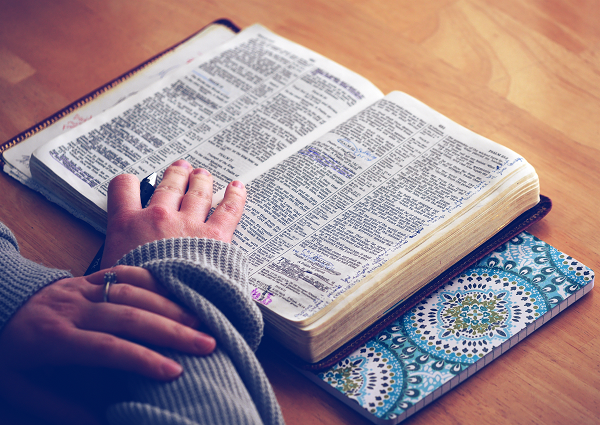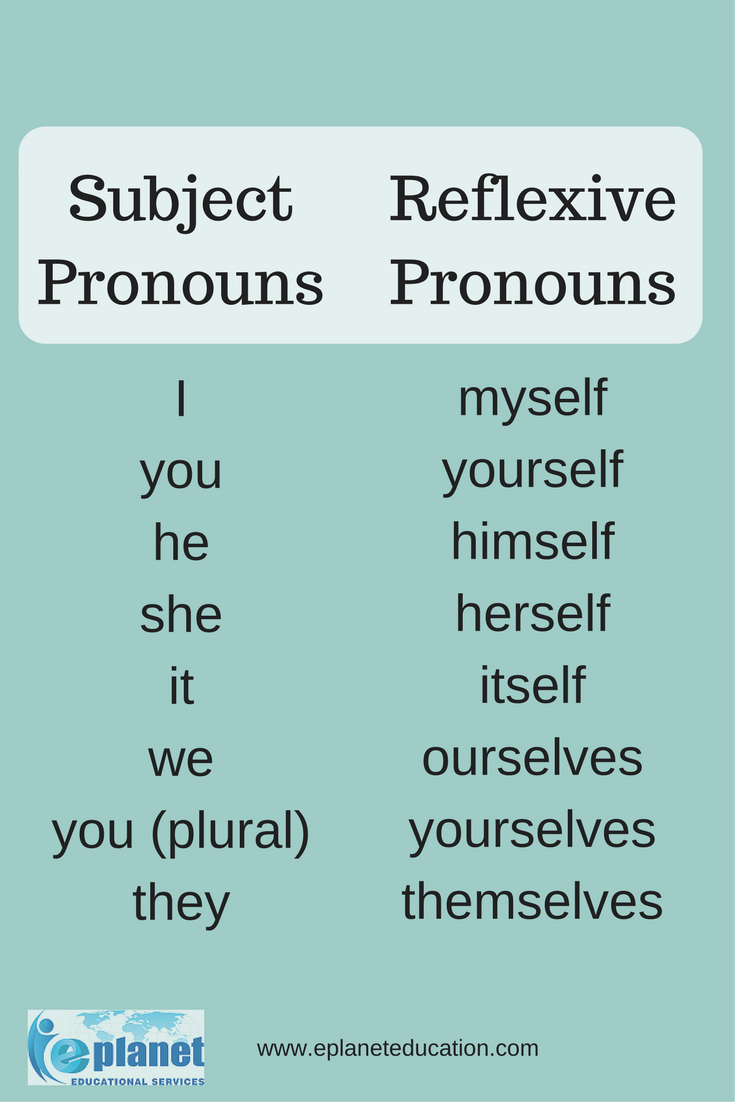English Reflexive Pronouns: The Ultimate Self-Study Guide
Do you like to teach yourself English? Or do you like to learn in a classroom with the help of a teacher?
Do you enjoy spending time by yourself?
Wait! Why are we asking you all these questions? We've asked these questions to highlight the word yourself, this is an example of a reflexive pronoun. Although they might seem tricky at first, if you understand the idea behind them you'll sound a lot more like a native speaker.
The reflexive pronouns are:
When To Use a Reflexive Pronoun
We use a reflexive pronoun:
as a direct object when the object and the subject of the verb are the same
I am teaching myself how to cook
You should be careful running at night. You might hurt yourself.
They are used to make it clear who or what is being referred to. Compare these two sentences:
|
Shaun blamed himself for being late. |
Here the subject (Shaun) and the object (himself) are the same. |
|
Shaun blamed him for being late. |
Here the subject (Shaun) and the object (him) are different. Shaun is blaming another man for being late. |
We couldn't say Shaun blamed Shaun for being late either, as this sounds odd and could be referring to two different people called Shaun. We need reflexive pronouns to make it completey clear what is happening in the sentence.
We can use a reflexive pronoun as a direct object with most transitive verbs. The most commonly used verbs with reflexive pronouns are:
|
amuse |
blame |
cut |
dry |
enjoy |
help |
|
hurt |
introduce |
kill |
prepare |
satisfy |
teach |
Some verbs change their meaning slightly when used with a reflexive pronoun. Some examples of this are:
amuse, apply, busy, content, behave, blame, distance, express, find, help, see
|
Would you like to help yourself to another drink? |
Would you like to take another drink? |
|
I wish the children would behave themselves. |
I wish the children would behave well/be good. |
|
He found himself at the wrong exit. |
He was surprised when he realised that he was at the wrong exit. |
|
I saw myself as a doctor. |
I imagined that I was a doctor. |
|
She applied herself to the job. |
She worked very hard to the job. |
|
He busied himself in the office. |
He worked busily in the office. |
|
She had to content herself with a couple of sweets |
She had to be satisfied with a couple of sweets. |
Reflexive Pronouns for Emphasis
We can also use reflexive pronouns for emphasis:
The manager of the hotel wrote to us himself to apologise for the poor service we received.
We don't use reflexive pronouns on their own as a subject in the clause, but they can be used with a noun or pronoun to emphasise the subject:
Many people have too many cups and glasses. I myself have 34.
By + Reflexive Pronouns
Reflexive pronouns are often used with by to mean on your own, without any help or alone.
Can you come with me to the supermarket? Why can't you go by yourself?
We redecorated the entire house by ourselves.
Reflexive Pronouns for Politeness
Reflexive pronouns can also sometimes be used for politeness instead of a personal pronoun, but not as a subject of the clause:
It's people like yourself that we wish to inspire.
For more information about Reflexive Pronouns in English and other languages, Wikipedia has this very in-depth article.
Did you find this article helpful? Let us know in the comments below and don't forget to share it, if you think someone else might find it useful!





Leave a Reply
Your email address will not be published. Required fields are marked